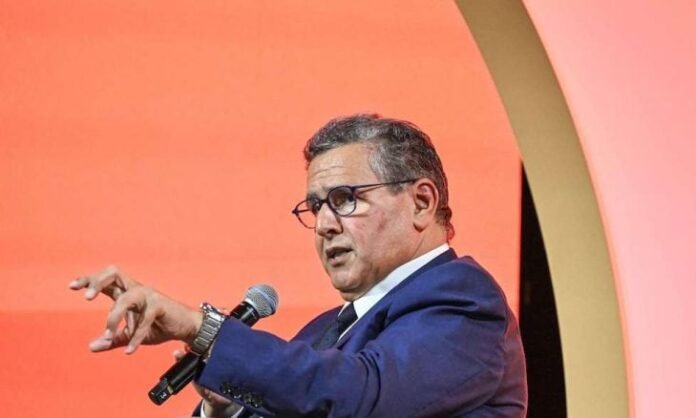The recent royal appointments to certain constitutional institutions raise many questions about their true purpose and impact on the political landscape in Morocco. While some see them as a step toward renewing institutions and reforming them, others believe they reflect an attempt to further strengthen the executive power’s control over regulatory and oversight institutions. Are these royal appointments an indication of a genuine shift in the state’s structure? Or are they merely a confirmation of the increasing dominance of the executive power over political and economic institutions?
Royal Appointments: The Balance of Power in the Face of Opposition
Royal appointments have always played a crucial role in guiding public policy in Morocco, as the king is the one who selects the individuals who will hold senior positions in the state. However, under the current circumstances, noticeable changes raise many questions about the independence of institutions from the grip of the executive power, particularly under the government of Aziz Akhannouch.
While some believe that these appointments are part of a course correction and the reactivation of institutions to serve the people’s interests, others argue that there is a subtle maneuver to absorb any opposition or critical voices against the government, thereby neutralizing them.
The Relationship Between Aziz Akhannouch and Abdelaziz Amara: Is He Just a “Piece in His Hands”?
The relationship between Aziz Akhannouch and former minister Abdelaziz Amara is one of the most prominent points that need scrutiny. Amara, who initially belonged to the Justice and Development Party (PJD), entered the government through alliances with various political parties. However, some argue that Amara acted as a link between Akhannouch and institutions that required coordination to pass his projects.
In this context, it seems that Amara provided valuable services to Akhannouch by strengthening his power in certain institutions, such as the Economic, Social, and Environmental Council, by eliminating any opposition that could threaten the stability of his policies and projects. By appointing Amara to head this council, Akhannouch’s influence is clearly visible in reshaping this institution in his favor, reflecting a growing strategy to control the state’s machinery.
Amara’s Appointment: A Strategy by Akhannouch to Expand His Power?
Was Amara’s appointment to head the Economic, Social, and Environmental Council the beginning of a strategic plan by Akhannouch to expand his influence and achieve his political and economic objectives? Or was this appointment simply a means to ensure the continued domination over institutions that could limit his powers?
Infiltration of the “Deep State”: Are We Facing a State Within a State?
One important aspect that needs to be highlighted is Hassan Uraid’s reference to the “deep state,” which he described as having taken control of the state’s machinery. According to this perspective, it seems that an unspoken infiltration has occurred within many constitutional institutions, meaning that the state is now governed outside the boundaries of official power. By controlling many of these institutions, the executive power has begun to strengthen its influence through appointments and the acquisition of institutions, creating a power balance that primarily serves its interests.
Control over regulatory and accounting institutions, such as the Court of Auditors and the Economic and Social Council, strengthens this situation and shows that the executive power may have crossed red lines concerning institutional independence.
The Real Fight Against Corruption: The Responsibility Awaiting Royal Appointments
The real fight against corruption requires independent officials who can make accurate diagnoses, objectively evaluate, be honest in their assessments and statements, be firm in their actions, and serious in their behavior. These officials should be sincere in their policy directions and offer real alternatives. It is unacceptable for officials to be skilled only in diplomatic speech without taking real actions to hold those involved in corruption accountable.
Royal Appointments: The Beginning of Genuine Reform?
While some may see royal appointments as a true desire to reform institutions and make them more effective, the question remains: do these appointments truly reflect a desire to strengthen transparency and accountability? Or are there unspoken objectives aimed at maintaining the status quo and ensuring continued control over the state’s machinery?
Unanswered Questions:
- Do the royal appointments aim for genuine reform, or are they a means to expand political and economic influence?
- Do these changes represent a real challenge to corruption, or are they an attempt to cover it up?
- How can civil society and oversight institutions respond to these appointments if they aim to reinforce executive power dominance?
- Is there really an infiltration of the deep state, or is the power simply seeking to strengthen its positions in the face of opposition?
Conclusion:
The recent royal appointments raise many questions about the boundaries of executive power and the balance of power in Morocco. Are they a step toward renewing state institutions and activating them for the public’s interest? Or are they simply a consolidation of the status quo and a strengthening of government influence over the state’s machinery? Only time will answer these questions, but one thing is certain: these appointments will be closely monitored by both political observers and human rights defenders.


